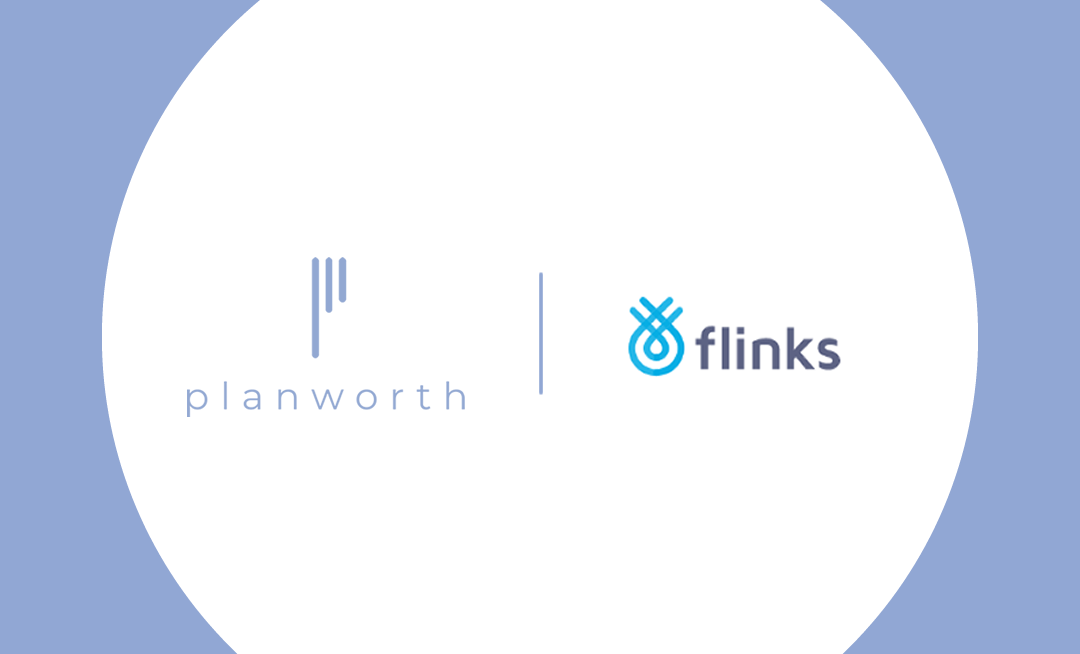by planworth-admin | Aug 21, 2023 | Uncategorized |
Every year, J.D. Power Canada conducts a comprehensive Full-Service Investor Satisfaction Study, releasing its findings to help financial firms gain insights into their clients’ needs and improve their service offerings.
In the 2022 Study, one statistic caught my attention. While 40% of investors reported receiving comprehensive advice from their financial advisors, a closer examination revealed that only 7% of these investors actually received all the essential elements of comprehensive advice, as outlined by J.D. Power’s criteria. This holistic advice includes making recommendations aligned with an investor’s best interests, understanding their goals and needs, and having a documented financial plan.
Beyond the disparity between the number of investors who claim to receive comprehensive advice and the reality, what truly stands out is the immense opportunity that effective planning holds for advisors. This opportunity is multi-fold:
- Driving Growth through Referrals: Investors who consistently receive comprehensive advice are more likely to provide referrals, thereby contributing to an advisor’s business growth.
- Fostering Trust and Retention: Comprehensive advice instills brand trust and enhances client retention, especially in times of uncertain portfolio performance.
- Unveiling Opportunities: Planning not only benefits clients but also advisors, as it uncovers opportunities and positions solutions that foster business growth.
The key takeaways from the 2023 study underscore the ongoing struggle of the Canadian financial advisory industry to deliver comprehensive planning to investors:
- Only 6% of Canadian investors are receiving a truly comprehensive level of service and advice from their wealth management professionals.
- Investors who are fortunate enough to receive comprehensive advice are more than three times as likely to recommend their financial advisor to friends or family, compared to those who receive transactional advice.
- A mere 57% of full-service wealth management clients claim to have a financial plan. Out of this group, a significant 43% do not believe their advisor’s recommendations are aligned with their best interests.
- Intriguingly, 38% of investors who claim to have a financial plan do not believe their advisor truly understands their financial goals and needs.
Planworth is dedicated to simplifying the delivery of planning services to clients and enhancing advisors’ ability to identify opportunities and tailor experiences. By achieving these goals, Planworth contributes to enhancing advisors’ overall book of business.
For those interested, you can find the complete press release of J.D. Power’s 2022 Full-Service Investor Satisfaction Study here. The 2023 study can be accessed here.
Should you have any inquiries regarding Planworth’s approach to comprehensive planning, don’t hesitate to reach out to us at connect@planworth.co. Your questions and feedback are valuable to us.
by planworth-admin | Jul 14, 2023 | NEWS |
Ali from SideDrawer joined Tarsem on our Webinar Series to discuss our integration. Advisors can use Planworth to open a new SideDrawer account or access their existing one.
The planning process inevitably involves collecting and sharing sensitive documents with clients. The process needs to be secure, which is one of the reasons we decided to integrate with SideDrawer. The other reason for our integration is the seamless experience for advisors and their clients, reinforcing how to think about and organize important documents. It is easier, safer and more efficient than email.
Reach out to the Planworth team to see what Tarsem and Ali had to say about the integration and SideDrawer’s guided organization and collaborative approach to document management by filling out our Demo / Trial request form here: https://www.planworth.co/contact-us/

by planworth-admin | May 19, 2023 | FINANCIAL |
With personal tax season behind us, it’s a good time to start thinking about tax planning for 2023 and beyond. In this post, we take a look at the federal government’s 2023 budget titled “A Made-in-Canada Plan: Strong Middle Class, Affordable Economy, Healthy Future,” which was released on March 28th (the “Budget”). The Budget’s main themes are inflation relief, strengthening public healthcare, investing in the economy and fiscal management
Tax Rates and AMT
No changes to personal, corporate, or capital gains tax rates were introduced; however, an increase to the alternative minimum tax (AMT) from 15% to 20.5% is proposed to ensure “wealthy” Canadians pay their “fair” share. These rules come into effect in 2024 and we expect more details to be released later this year. The AMT rules have been added to Planworth’s roadmap and you can expect to see them on the platform in Q1 2024.
Measures for Individuals, Owner-Managers, and Private Corporations
The Budget includes measures that will be relevant to planning for individuals, owner-managers, and private corporations going forward:
- Registered Education Savings Plans (RESP) – Increasing the withdrawal limit for beneficiaries enrolled in eligible post-secondary education programs
- Registered Disability Savings Plans (RDSP) – Expanding who can establish and hold plans for beneficiaries
- Intergenerational Business Transfer Framework – Addressing technical issues to make it easier to transfer family businesses to the next generation
- Beneficial Ownership Registry – Launching a publicly searchable beneficial ownership registry of federal corporations by the end of 2023
(NOTE: The federal public registry will include beneficial ownership information collected by provinces or territories that choose to participate. Most provinces (other than Alberta and the territories) have introduced their own beneficial ownership transparency legislation, each with unique rules and requirements.)
- Employee Ownership Trusts (EOT) – Helping employees purchase a qualifying business of a Canadian-controlled private corporation (CCPC)
Our product team is working to integrate these measures into the platform and update to the Evaluation, Financial Insights, and Wealth Insights, accordingly. Look out for releases on your Advisor Dashboard and in our newsletter
The Budget also includes measures affecting public corporations, REITs, banks, credit unions, international tax, sales and excise tax, GAAR, and Canada’s clean economy. All budget documents are available from Finance Canada Budget 2023 webpage (https://www.budget.canada.ca/2023/homeaccueil-en.html).

by planworth-admin | Feb 19, 2021 | NEWS |
Planworth is excited to announce a new partnership with Flinks, a leader in financial data connectivity and account aggregation.
Always and only with a client’s consent, account aggregation gathers financial data from a broad range of financial accounts and institutions and increases transparency by helping financial advisors gain a deeper understanding and more comprehensive view of their clients’ finances and wealth, particularly for clients with assets and liabilities spread between different institutions and firms. Once fully integrated, Flinks will allow advisors on Planworth to have their clients link all their financial accounts (inside or outside the advisor’s firm) by securely logging into their online banking and investment accounts. Thereafter, the advisor will be able to view and pull accurate and up to date data about a client’s accounts, regardless of where they may be held.
By working with Flinks, Planworth is building on our platform by using aggregated financial data to help advisors guide the planning process and support clients through all stages of their wealth journey. With a consolidated view of a client’s current financial picture and access to data point typically not at their disposal, advisors can save time on discovery, deliver more tailored and insightful recommendations to clients and more readily identify planning opportunities and solutions for clients.
Planworth’s integration with Flinks advances our mission to modernise the wealth planning process by empowering advisors to deliver more value for clients and grow their business.

by planworth-admin | Jan 19, 2021 | FINANCIAL | RESP, TFSA, US
Canadian clients who also happen to be US citizens or green card holders (US Persons) present unique challenges and opportunities because rules on both sides of the border apply to them. Many planning strategies that seem like no-brainers from a Canadian perspective can lead to potentially negative US tax consequences for US Persons.
This post provides a summary guide to common pitfalls for US Persons living in Canada that every investment advisor should be aware of.
Disclaimer: The content of this guide is provided for educational and/or general information purposes only and does not constitute legal, tax, investment or other professional advice. You must instruct your client to seek specific legal, tax or other advice before exploring or making any changes to their situation.
1. RESP
Registered Education Saving Plans (RESP) are a great tool for Canadian parents to help their children with post-secondary education. However, if the parent who owns the RESP is a US Person, complex annual filings with the IRS may be required and the income and grants earned in the RESP may be subject to unexpected US income tax. Issues can be further complicated if the child beneficiary of the RESP is also a US Person. In either case, the client should consult with a US tax expert to ensure there are no issues.
Potential Solutions
If only one parent is a US Person, it may make sense to have the parent who is not a US Person as the RESP’s only owner.
If both parents are US Persons, it may be advisable for the RESP to be held by another trusted person who is not a US Person, like a grandparent.
2. TFSA
A Tax Free Savings Account (TFSA) is a very attractive investment vehicle because growth and income inside the TFSA are generally exempt from Canadian tax. However, this tax-free treatment in Canada does not necessarily mean there will not be US tax issues for a US Person with a TFSA . A TFSA may require a US Person to complete complex annual filings with the IRS and income in the TFSA may be unexpectedly taxable in the US.
Uncertainty
There is some disagreement in the tax planning world about whether US Persons with a TFSA are subject to US tax and compliance. Most tax experts err on the side of caution and will not recommend TFSAs for US Persons until the IRS comes out with clearer guidelines.
3. Canadian Mutual Funds
Special US tax rules apply to a Passive Foreign Investment Corporation (PFIC). A PFIC is a non-US corporation that produces most of its income from passive investment income such as dividends or interest.
The broad definition of a PFIC includes many Canadian mutual funds and may also include a private Canadian corporation such as a holding company that holds a stock portfolio. Owning a PFIC may cause complex annual filings and potential unexpected tax payable in the US tax return of a US Person.
Issue
A US Person that holds a Canadian mutual fund may be exposed to the PFIC rules without knowing it. This does not mean that a US Person can never hold a Canadian mutual fund, but the consequences of doing so should be considered. Therefore, an advisor should coordinate with the client’s US tax expert to ensure that the advisor’s purchase of Canadian mutual funds for the US Person does not inadvertently cause US compliance or tax issues.
4. Whole Life Insurance
A lot of investment and estate planning strategies use Whole Life Insurance because it offers many tax advantages. In particular, income earned inside the policy is exempt from Canadian tax. However, the income earned may be taxable in the US tax return of a policyholder who is a US Person.
Follow Up
If a client has a whole life policy and is a US Person, the advisor should encourage the client to consult with a US tax expert so that any potential issues can be addressed.
Likewise, if a US Person is considering the purchase of a whole life policy, the advisor should have the client run the recommendation by their US tax expert to ensure any potential issues are addressed.



